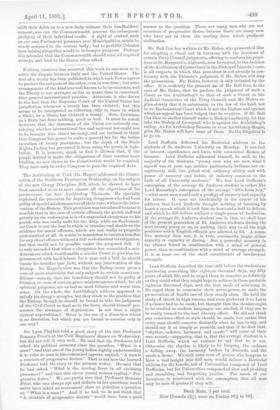The Archbishop of York (Dr. Magee) addressed the Cony°. -cation
of the Northern Province on Wednesday, on the subject of the new Clergy Discipline Bill, which he showed to have been amended so as to meet almost all the objections of his predecessor, the late Archbishop Thomson. He specially explained the provision for depriving clergymen who had been guilty of special misdemeanours of their cure, without the inter- vention of the Bishop. This provision was introduced because it was felt that in the case of certain offences, the parish suffered greatly by the restoration to it of a suspended clergyman to his parish who was really unfit for the duty, while an Ecclesiasti- cal Court is not the best in which to examine and decide on the evidence for moral offences, which are not really or properly ecclesiastical at all. It would be monstreus to vacate a benefice for any ritual offence without a full ecclesiastical investigation, but that would not be possible under the proposed Bill. It is only intended that when a clergyman has committed a mis- demeanour which would enable a secular Court to give him im- prisonment with hard labour for a year and a half, he should vacate his benefice ipso facto, without any intervention of the Bishop. Dr. Magee's view was that the Bishop never gives a cure of souls absolutely, but only subject to certain moral con- ditions—namely, that the beneficiary should not be guilty of felonies, or even of certain grave misdemeanours which, for all spiritual purposes, are as bad as most felonies and worse than some. On the whole, the Archbishop's address appeared to satisfy his clergy's scruples, but they stuck to the position that the Bishop, though he should be bound to take the judgment of the Civil Court as final as to the facts, should himself pro- nounce the sentence of deprivation. Is not that a slight 'clerical superstition ? What is the use of a discretion which is no discretion, but which you are bound to exercise only in one way ?


































 Previous page
Previous page